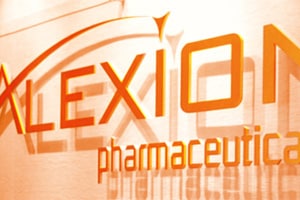 The UK’s cost-effectiveness watchdog has said it will need to see additional trials of Alexion’s Kanuma for lysosomal acid lipase deficiency (LAL-D) before it can recommend the drug.
The UK’s cost-effectiveness watchdog has said it will need to see additional trials of Alexion’s Kanuma for lysosomal acid lipase deficiency (LAL-D) before it can recommend the drug.
In draft guidance, the National Institute for Health and Care Excellence (NICE) said additional data might allow it to back the use of Kanuma (sebelipase alfa) in patients diagnosed at six months or younger.
However, NICE’s draft guidance has rejected the drug outright for patients who did not present with rapidly progressive LAL deficiency before they were six months old.
LAL-D is an enzyme deficiency disease that causes a build-up of fats in cells and in turn can lead to liver and cardiovascular complications. It is very rare, affecting just 1-2 per million births. An early-onset form of the disease typically leads to death in the first year of life, while patients with a later-onset form survive for longer but remain at high risk of organ damage and premature death.
At the moment, the recommended treatment of both forms is haematopoietic stem cell transplantation (HSCT) to replace the patient’s bone marrow and blood. Kanuma is the first alternative treatment for LAL-D and has been approved in both the EU and US.
Kanuma costs an eye-watering £490,000 a year (around $700,000), and NICE has concluded that while there is a compelling need for new treatment there was a “lack of data on whether [sebelipase alfa] completely reversed LAL-D over the long term and prevented complications of the condition”.
“Even based on more optimistic assumptions of long-term treatment effect, the cost of sebelipase alfa would be very high,” said NICE Health Technology Evaluation Centre director Carole Longson.
NICE recommends that trials should be designed to generate robust evidence about the costs and benefits of long-term treatment with sebelipase alfa compared with shorter term ‘bridging’ therapy, ahead of a stem cell transplant.
Rare disease specialist Alexion bought rights to Kanuma when it acquired Synageva for $8.4bn last year.
In a statement, Alexion said that NICE had “failed to recognise the transformative clinical innovation of Kanuma for patients with LAL-D”, including “a major survival benefit in babies and a significant improvement in multiple liver parameters in children and adults with LAL-D”.
“HSCT is not an effective option for patients with LAL-D, and data has shown that infants still die within the first year of life,” it continued.




